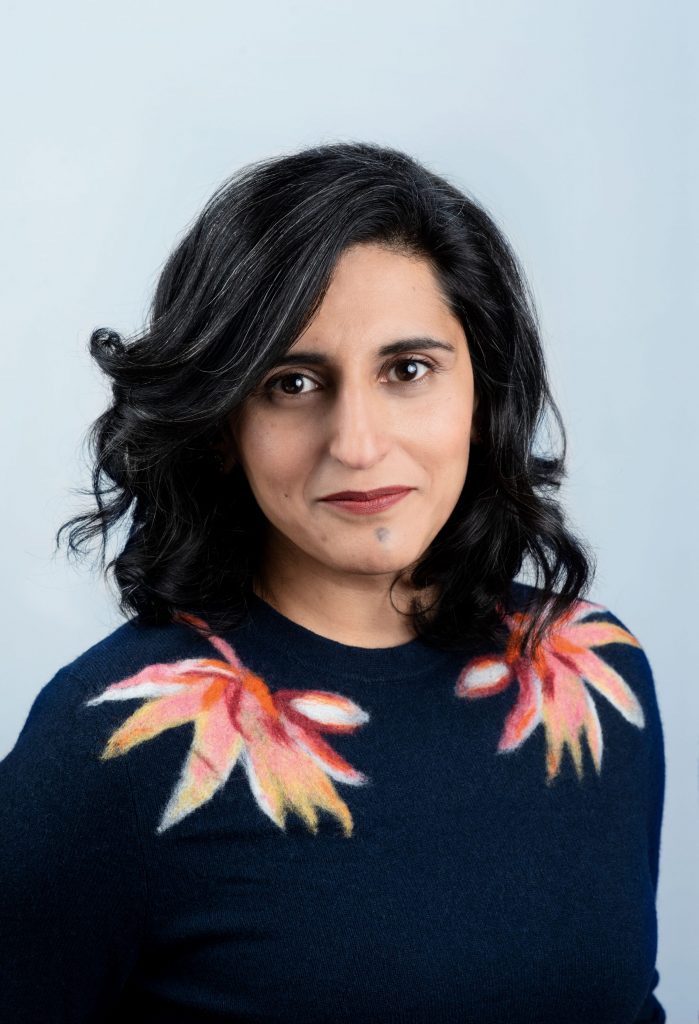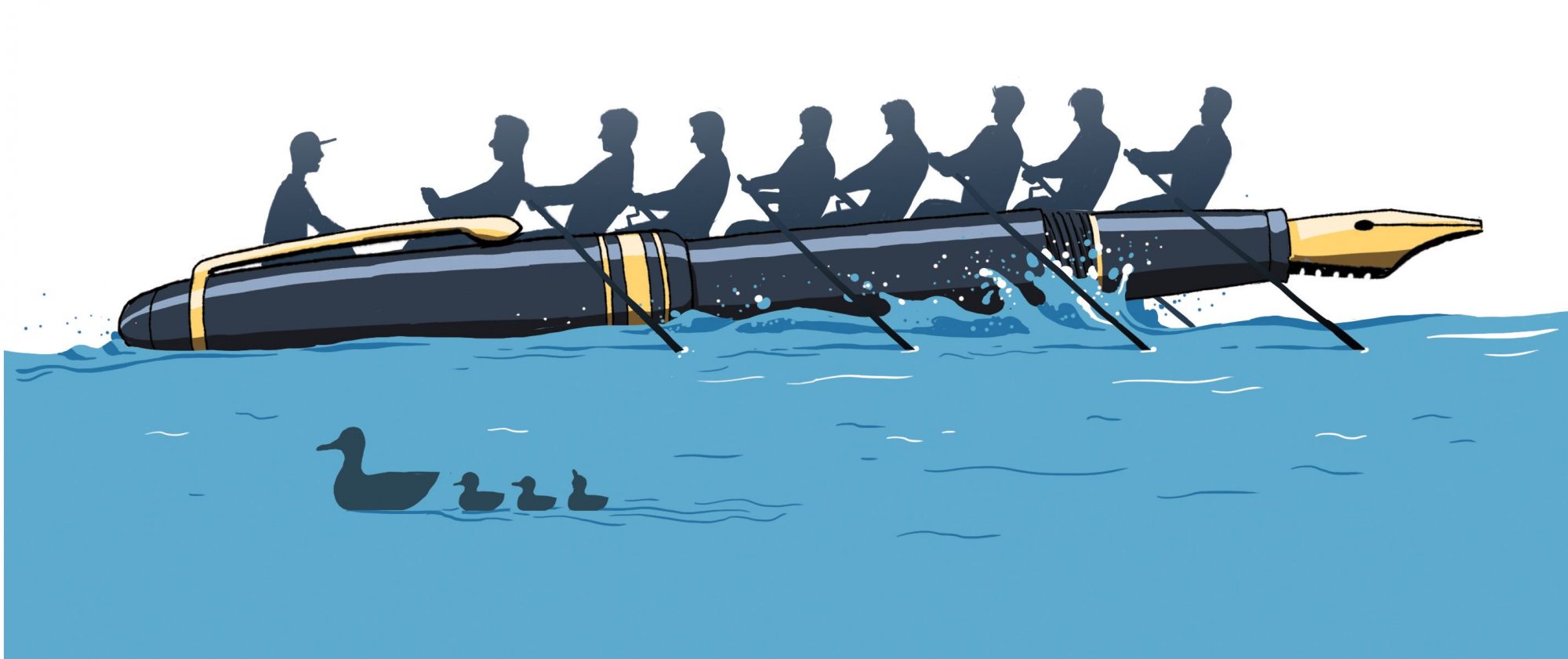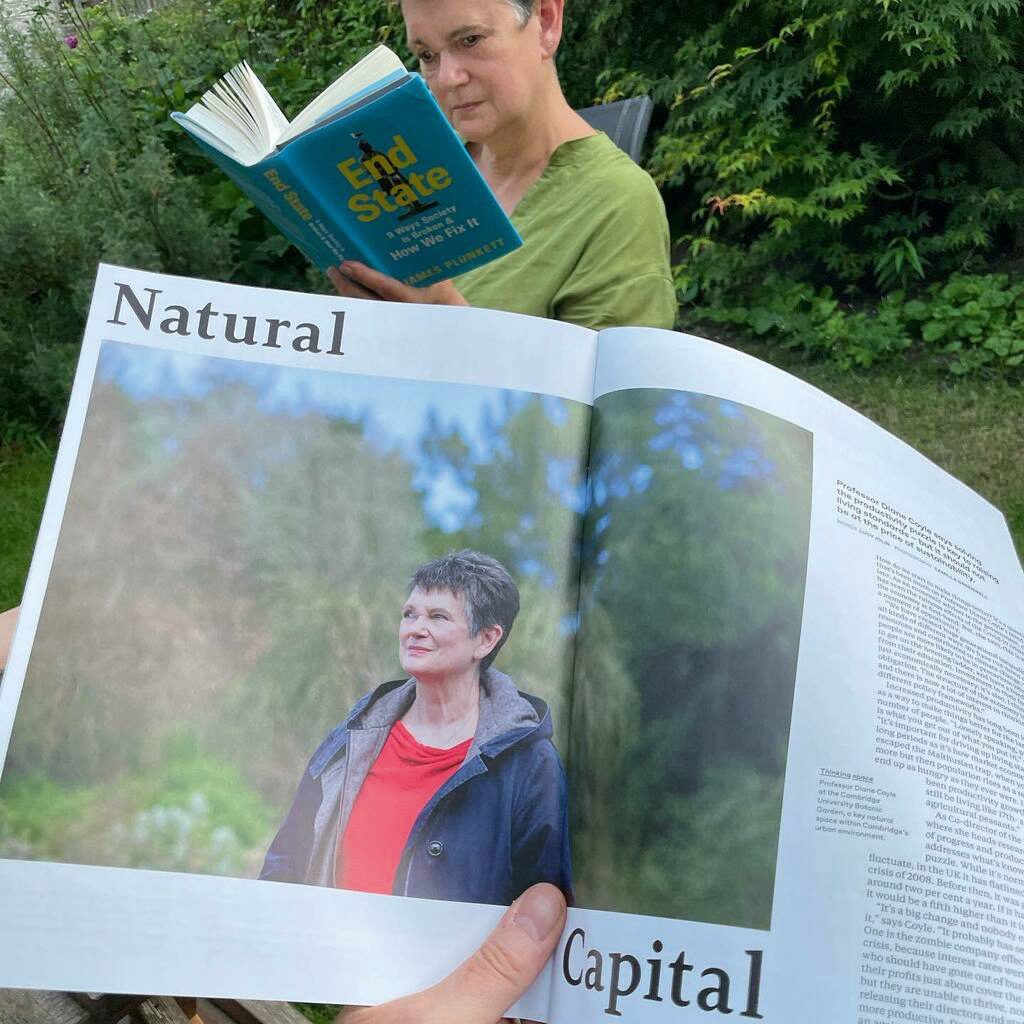Inbox: CAM 95

Editor’s Letter
Welcome to the Lent Term edition of CAM. As I write this, the world seems far more unsettled than it has for many decades. As the tectonic plates of geopolitics shift, what does the US really think of its ‘special relationship’ with the UK, now more than 70 years old? And what do the coming decades hold?
Elsewhere, we explore the impact of a tiny parasite on the lives and livelihoods of nomadic communities in northern Kenya. And we discover how pioneering Cambridge research can deliver personalised medicine at the Cambridge Cancer Research Hospital.
Mira Katbamna (Caius 1995)
CAM 93
Jack Cohen’s letter (CAM 93) posits the Cohen Singularity when robots will play themselves in movies. This leads us to wonder how long the world must wait until an even newer singularity sees robots playing humans.
Leslie Clarke (Queens’ 1948)
Quentin Letts is, of course, wrong (Inbox, CAM 93) to say that the Brexit revolution was bloodless: an MP was murdered. And I question his logic that says that consensus is bad because public opinion may be “tribally” divided, and “parliamentary ding-dongs are a sign of democratic strength”. You only have to look to page 11 of the same issue, where Professor Oldroyd writes: “The longer we stay in a polarised debate, the less time we have to deliver the step change we need.”
Steve Rothman (Churchill 1982)
The excellent article on housing problems (Living Room, CAM 93) concludes that thinking about the needs of local people is crucial, but traditional consultation methods can fall far short of the mark. The community-led housing movement, where housing projects are designed by the community rather than for them, has made huge differences to many lives in the US, and has been well-grounded in rural areas of the UK for several decades. London CLT is one of the pioneers in UK cities, working hard with communities to create permanently affordable homes and transform neighbourhoods. And readers interested in the subject should be aware of Leilani Farha’s amazing work in this area.
Kate Gould (née Cartmell, Clare 1991)

The University Appointments Board (Careers Service, CAM 93) may not have known just how well some of their recommendations were turning out. At my interview in 1952, I told the board I spoke four languages and liked writing and travelling. They suggested a career as foreign correspondent with Reuters. One of them turned to the others and said: “Didn’t we send a young chap there recently? I think he was called Chancellor.” Soon after, I was at Reuters for a series of interviews, the last of them with a not-so-young chap called Chancellor – Sir Christopher Chancellor, who by then had risen to be chairman of the Reuters board of directors. He took me on.
Peter Howard (St Catharine’s 1949)
While CAM 93 covered science and technology issues well, it was good to have the counterbalance of the Vice-Chancellor’s article (This Idea Must Die) defending the humanities. In his closing paragraph in which he refers to “the myriad ways in which the humanities help us understand humans and humanity”, I note that he shies away from mentioning religion. Here we understand the forces that have shaped us – and incidentally have shaped the University. We neglect or downplay their importance to our impoverishment.
Peter Pattisson (Pembroke 1957)
I particularly liked to see the article on the question of just wars (Just War?, CAM 93). My fear for the future is that as global warming gets worse and natural resources more depleted, we will begin to fight over what is left. We will also see mass migration from countries that are too hot for human beings to more temperate climates away from the equator, which will generate conflict over land.
John Gamlin (Fitzwilliam 1958)

“This is a bit meta isn’t it?” says the prof who is in the Cambridge alumni mag…
Rory Cellan-Jones (Jesus 1977)
CAM 94
Really enjoyed this issue, especially the article (My Garden, Your Garden, CAM 94) about King’s College wildflower meadow. Great to see thriving biodiversity and attention to the potential of the soils and the specific site, rather than considering only what society might want.
Laura Day (St John’s 2014)
When my daughter was five or six somebody gave her a T-shirt emblazoned with the message “Kids are people too”. We all smiled wryly. James Biddulph’s thought-provoking article (Brainwaves, CAM 94) about the importance of dialogue with schoolchildren reminded me of this and of the conundrum about how to remain open to children’s wisdom while having to provide them with useful knowledge. Striking the right balance between delivering a knowledge-based curriculum and giving youngsters the chance to be heard remains a challenge, but one worth rising to. Overprescriptive national educational requirements can be a straitjacket to liberating young minds.
Peter Chapman (Caius 1966)
I’m happy that we have enough science and engineering to be able to substantially reduce global CO2 emissions now. Further progress is no doubt possible, but is not essential right now. What is needed is the economic, political and social environment that will drive rapid deployment of what we have, and these must be the areas for priority development. I do not agree with the tactics of Insulate Britain, but it’s a job that needs doing urgently and it’s not happening.
John Heathcote (Queens’ 1973)
Write to us
We are always delighted to receive your emails, letters, tweets and facebook posts.
- By email
- cameditor@alumni.cam.ac.uk
- By writing
- CAM, 1 Quayside, Bridge Street, Cambridge, CB5 8AB
- By Twitter
- @Cambridge_Uni
- By Facebook
- facebook.com/cambridgealumni
Please mark your letter ‘For publication’. Letters may be edited for length.



